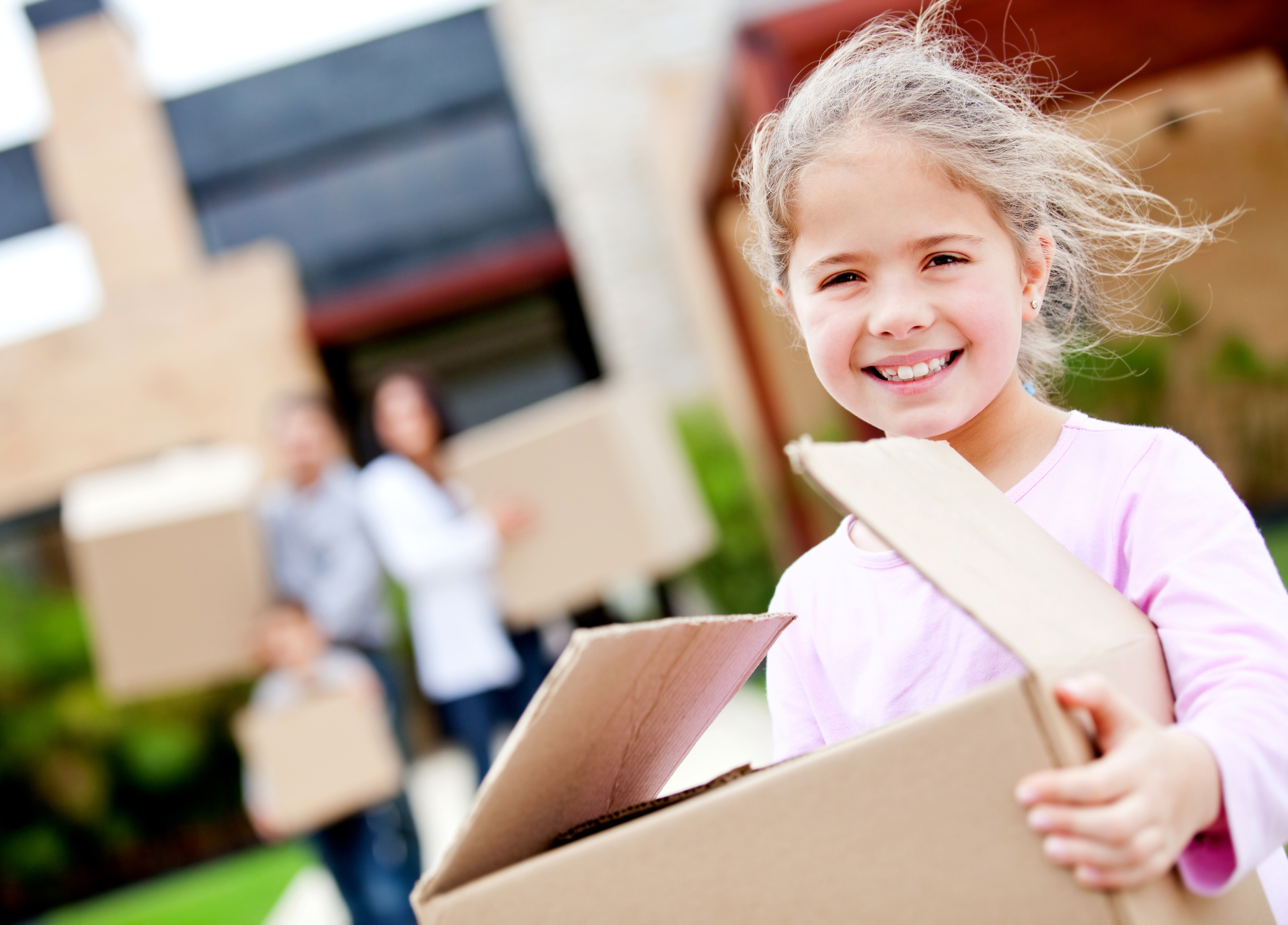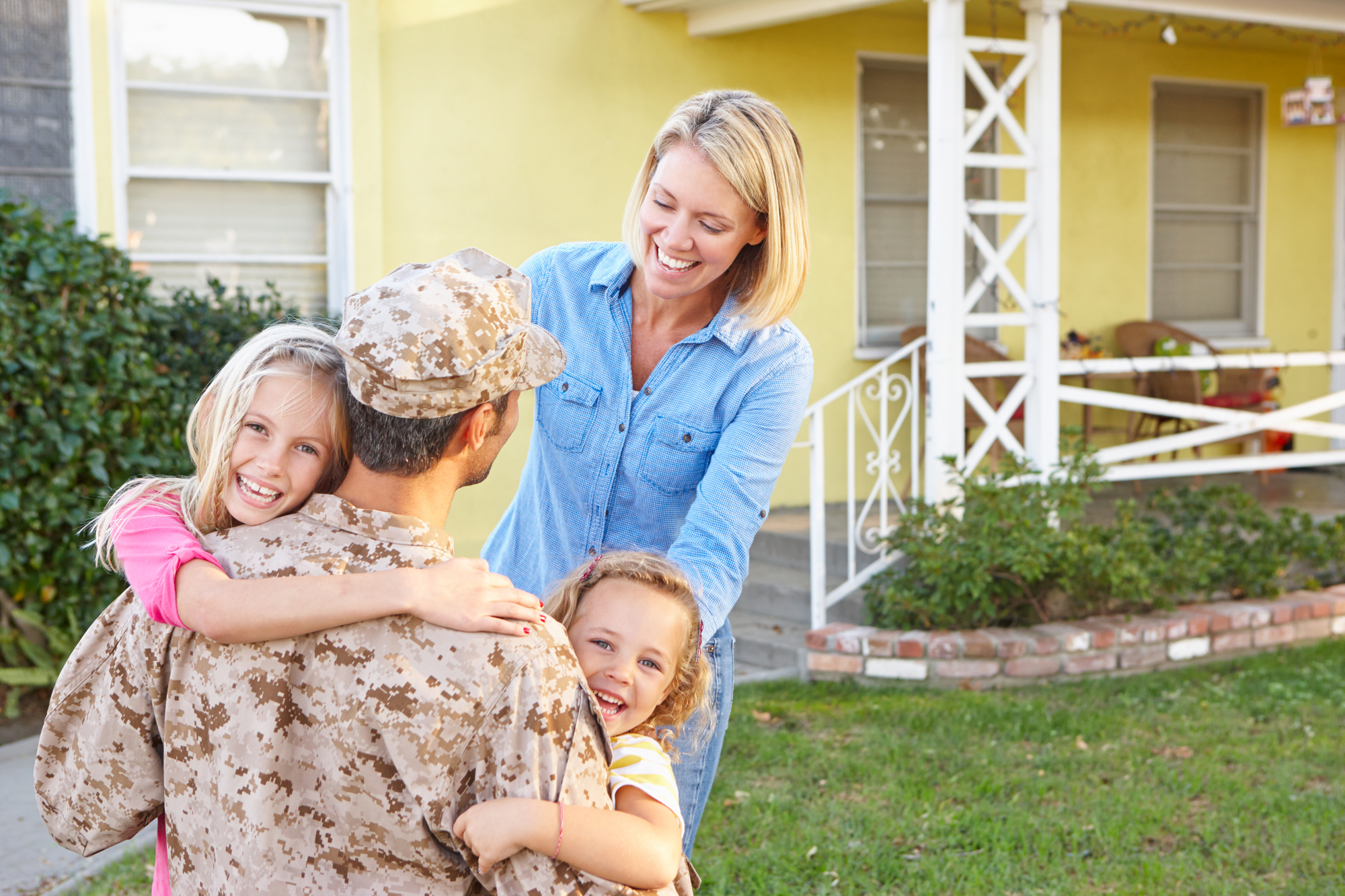‘Look at those poor people Mummy, they have to move’, said my 6 year old daughter as we drove past a removal truck in someone’s driveway. We had just moved into our third house in five years and she was not coping well with the change. Moving with kids can certainly be challenging.
My daughter is now 10 and has lived in six different houses, with another move planned for the end of this year. Being a Defence family, we have moved across cities, across states and overseas. Our children have been to four schools and only one school for consecutive years.
Moving house is one of the three major stressful transitions in life – right up there with death and divorce and no matter how resilient you or your children are or how used you are to moving, each move is a physical, social and emotional strain on everyone involved. When stress is high, it is easy for tensions to flair as we act from an irrational mode or fight/flight response.
As adults, we have better coping mechanisms in place to be able to deal with the change. However, our children don’t.
Moving affects some children more than others and according to Psychology Today, children that suffer the most with a move are those who are introverted, have tendencies towards anxiety and inflexibility and are in the middle school years.
It is our job as parents to help our children prepare for the move and ensure a smoother transition. With the right tools and strategies in place, we can do just that.
Here are some ways to help your children thrive with the next move.
-
Talk about the move early
When you find out about the move, tell your kids. There is nothing worse than letting them finding out from an overheard conversation. Keep your kids informed every step of the way of what is happening and when. If they are much younger, still talk about it but don’t confuse them with dates. Prepare them for what it will feel like, look like and what will happen on the day and the months afterwards. Don’t dwell on it, but talk about it so they are prepared for the journey. If you move a lot, be upfront about how long you might be in one place and make the most of it.
-
Focus on the positives of the move
The positives for your kids and family will change for every move. It might be that you are going to be closer to family and friends, moving to a new location with lots of adventure and travel, more sporting opportunities, having their own bedrooms or making new friends. You might be moving to your own house or a bigger house or a better location.
Research the location together and find the best parks, restaurants and places to ride bikes (if that is what your kids are into). If you can’t go to location beforehand, Google Maps are great to see where you will live and what is around.
Focus on positives from the last move. When we moved to America, we lived in a suburban street and didn’t know anyone. We had to form our own community and while we were doing it, we become a very close-knit family. We relied on each other for entertainment and adventure and it has been pivotal for all other moves to remember this. Maybe the last move was easier because you already knew people there or know the location you were moving to.
-
Be super organized for move day
Ensure the house is move ready. If the kids are old enough, get them to help you put everything in place. If you have accommodation in the pre pack, uplift days make sure it is nearby and going to be easy for all involved.
Prepare the kids for the day by talking about the timings, what happens and where the truck goes with all their belongings. If your kids are young, organize for them to be else where on the actual day everything is loaded onto the truck. It is hard when their favourite bike or bed is put onto the truck and they don’t understand where it is going.
Have the beds stripped, water out of the iron, the fridge cleaned out and off, the washing machine ready, bins emptied and everything other little detail tied down the night before.
-
Organise schools in advance
Getting your kids into the ‘right’ school is so important to a great transition. If you know you will be in one or two major locations for the majority of moves – find the schools now and book your children in. Hedge your bets and book them into three or four schools that suit your family and your children. For example, if you are moving to Canberra or Washington DC ask around and research three schools you can see your children going to in high school and book them in now.
If your move is imminent and you know which school your child is going to, organize a school visit. If you are Defence, see if there is a Defence Liaison at the school and if so, meet them and have them organize your child to meet some children from their class. One of my students was moving to a school on the other side of the country and the family were only arriving a week before school started so our Defence Liaison organized for him to Skype into the class and buddied him up with another defence child to talk about the school and ask any questions. Also, buy their uniforms in term before they start school so they can picture it.
Once your child is at school, make settling in socially and emotionally the number one focus. Academics will follow.
If your child has a supportive teacher, makes a good friend or two early on and enjoys the classroom – they will thrive. To facilitate this, be at school pick up to meet some of their friends and the other parents, organize playdates early on, find other community groups to join, take an interest in their new friends and talk about how their lunch was and who they played with. You may need to talk about strategies here with your child to help them make friends and what you do if they have no one to play with.
-
Validate emotions (including your own)
All children will all react differently. Some will lash out with anger, other retreat, others cry – whatever it is, validate it as a real feeling and talk through it.
For example, if your child is sad because they will miss their friends, validate that feeling. Tell them is it completely normal to feel like this and you feel like it to. Talk about what they will miss about their friends and all the fun things they have done together. The worst thing to say here is ‘don’t worry, you will make new ones’. Right now, they don’t want to think about any new friends and it will probably spark more anxiety over leaving their friends to have to find new ones. Talk about their great ability to make friends and how easily they did it at this school. For more about validating emotions, go to my articles on anger and disappointment in children.
A great resource for exploring emotions around moving is the movie ‘Inside Out’ – watching it may help your child name their feelings and talk to you about it.
Unless you are a robot, you will also be going through feelings around moving. Validate them and talk to your children about how you are feeling (without over catastrophising). Talk to them about what you do when you are sad or upset to help them with their own feelings.
-
Stay in control
Your children will largely take their lead for the move from you. If you are strong and in control – your children will be too. If you are positive – you will help your children to be positive. While it is a lot of added pressure for parents at move time, we are our children’s biggest role models at this time and need to remember this.
There is so much to do physically that tensions can build at this time between you and your partner. Try to resolve them quickly and work together as much as you can. Your children will pick up on every little bit of stress and adversity and react accordingly.
This is where you can use your support networks to help. Ask a friend to pick up your kids on the days of your move or bring you dinner or come over with a coffee on move day. When we moved from America, my friend came over with a Starbucks coffee and sandwich for lunch and ate it with me over boxes, removalists and screeches of sticky tape and it was my saviour! Don’t try to do it alone – others will help you to keep it together and stay strong for your families.
-
Keep boundaries, routines and habits in place as much as possible
As much as possible, keep you children’s regular boundaries, routines and habits in place, especially around morning and bedtime routines. If your kids clean their teeth and then you read them a story before bed – keep doing it. If you expect them to use their manners as a habit, keep reminding them. If you feed them lunch at a certain time, do it. Keep meeting their needs as much as possible; otherwise this puts added strain on emotions and relationships.
Be prepared that some of this will slip and that is also OK as long as you can get back to it as quickly as possible. When the rules and boundaries stay the same, your kid’s feel reassured this is a relatively normal thing to do.
-
Mark the end
Saying goodbye to friends is an important step to finishing in one place and moving to the next. They feel significant and belonging from the community they have been part of and leave on a good note. You could organize a class leaving party after school, or invite a few friends over for a sleep over.
A Defence family who recently moved had their children take a school shirt in for every student in their class to sign and also made up little ‘Stay In Contact’ cards with their new address and details to hand out to friends. As a family, you might spend the last few weeks doing your favourite things in that location, like going to your favourite restaurant or going to your favourite park. This will cement the fun memories you have had in this location. Share Skype or social media contacts with the parents (or among the children if they are old enough) and vow to stay in touch.
-
Give your family 6 to 12 months to settle in
This is so easy to forget!! After talking to many Defence spouses and experience from our own moves, it takes TIME to settle in.
Give yourself at least 6 to 12 months to feel like you are part of the new location and communicate this with your children. Don’t expect that after a month or two, it will all be smooth running. It takes time to break into any community and form the friendships and develop robust routines.
The idea is to build long-term resilience so our children are adaptable to change. Ideally by talking about the move, being super organized, validating emotions and maintaining schedules – we can help our children to be emotionally sound for this move and subsequent moves.
Got a question? Head over to Anna’s Facebook Group, Parenting the Positive Way and connect with 150 + like minded parents here.









I am a father of 3 kids, this is some thing very nice I never read any thing regarding parenting but I guess not only women are the part of it but father should also read this post.
My husband and I are moving with our two kids at the end of next months. We are trying to talk to them a lot about this big change in our life. I can say that every time they are more positive about the big day and even excited. I really hope everything to go smoothly! Greetings